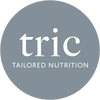6 Success Habits of Weight Loss Surgery Patients

The question was asked: “Why can one patient who has this surgical procedure maintain weight loss year after year, and another patient, who has the identical procedure, lose substantial weight and regain it?”
Colleen Cook's study spanned the experience of thousands of weight loss surgery patients and discovered 6 common habits- the 6 success habits, that regardless of surgery type resulted in success.
The Six Success Principles:
1. Personal accountability
2. Portion control
3. Nutrition
4. Fluid Intake
5. Regular exercise
6. Vitamins and supplements
1. PERSONAL ACCOUNTABILITY
“I recognise that I alone am responsible for my successes and failures”
- Take responsibility for who, for what, and for where you are right now
- You are where you are right now because you have chosen to be so. Your life must be serving you in some way, or else you would have already made a change
- You and only you are responsible for what you eat, when you eat, how much you eat…and why you eat
Strategies:
- Regular weighing – ignorance doesn’t change reality (‘you weigh what you weigh’)
- Goal setting – if we write goals down, we can accomplish them
- When I am successful it is because of my actions and my behaviour
2. PORTION CONTROL
“I understand the importance of satiety and listen to my body’s signals.”
Hunger- the primary physiological drive to find food to eat – a feeling of discomfort or weakness caused by a lack of food
Appetite- the desire to eat, little to do with nourishment – stimulated by sight, smell or thought of food
Satiety – the state of being full or gratified to or beyond the point of satisfaction
Strategies:
- Weight loss journal – when hungry? circumstances? cravings?
- List of foods – feel full vs not full. Adjust meals accordingly
- Eating the right volume at one meal
- Eat adequate protein
- Slow down! Eat only – be mindful
- Chew food thoroughly
- Use small plate and small utensils
- Avoid snacking and grazing
3. NUTRITION
“I make good healthy food choices each day.”
- PROTEIN: stays in body longer, digests slowly, stabilises blood sugars. Eat it first
- Complete (animals) and incomplete (legumes)
- VEGETABLES: important, essential source of vitamins, minerals and fibre, low in fat and calories
- CARBOHYDRATES: Eliminate most simple carbs to encourage body to utilise its fat stores for energy
4. FLUID INTAKE
“I drink the right amount of the right beverages at the right time each day.”
- Staying hydrated - thirst often disguises itself as hunger
- Caffeine- Amplifies stress consistently throughout the day (which contributes to unhealthy eating habits), stays in body for up to 6 hours, raises BP, stimulant that can increase hunger, decreases bone density…try decaf ☺
- Alcohol – high in calories, rapid rate of absorption, affects inhibitory centre, transfer addiction can occur
- Plan to consume 1.5 + litres/day of low calorie fluids
5. REGULAR EXERCISE "THE SINGLE BEST EXERCISE
“I have adopted the habit of exercise as part of my lifestyle.”
- Physical activity helps to maintain optimal cognitive function and neurotransmitter release – feel good factors (serotonin / 5 HTP) Also improves cerebral blood flow (clearer thinking), sleep quality and immunity
- Activity is critical to help maintain the balance calories in vs calories out
- Identify excuses and rationalisations not to do physical activity- what are the obstacles that are stopping you from exercising?
- Current NZ guidelines - 150 min/week of moderate intensity activity
6. VITAMINS AND SUPPLEMENTS
“I take good quality vitamins each day to ensure my good health.”
After surgery:
- Fewer nutrients are eaten, less stomach acid, and some nutrients require acid for processing (ie Iron), less Intrinsic factor for Vit B12 absorption
- Bypassing duodenum, responsible for primary absorption of many micronutrients – nutrient deficiency
- Nutritional supplements - best absorbed if taken with food
- Vitamins which have been specifically formulated for weight loss surgery patients are both necessary and superior to generic vitamins that can be purchased through prescription or over the counter
There will be good days where you own all 6 of them and other days where you may struggle with one or two. But the key is to be mindful of what you need to be doing and using these
Success Habits as both the structure and an anchor to keep your behaviour supporting your goals of healthy living.


